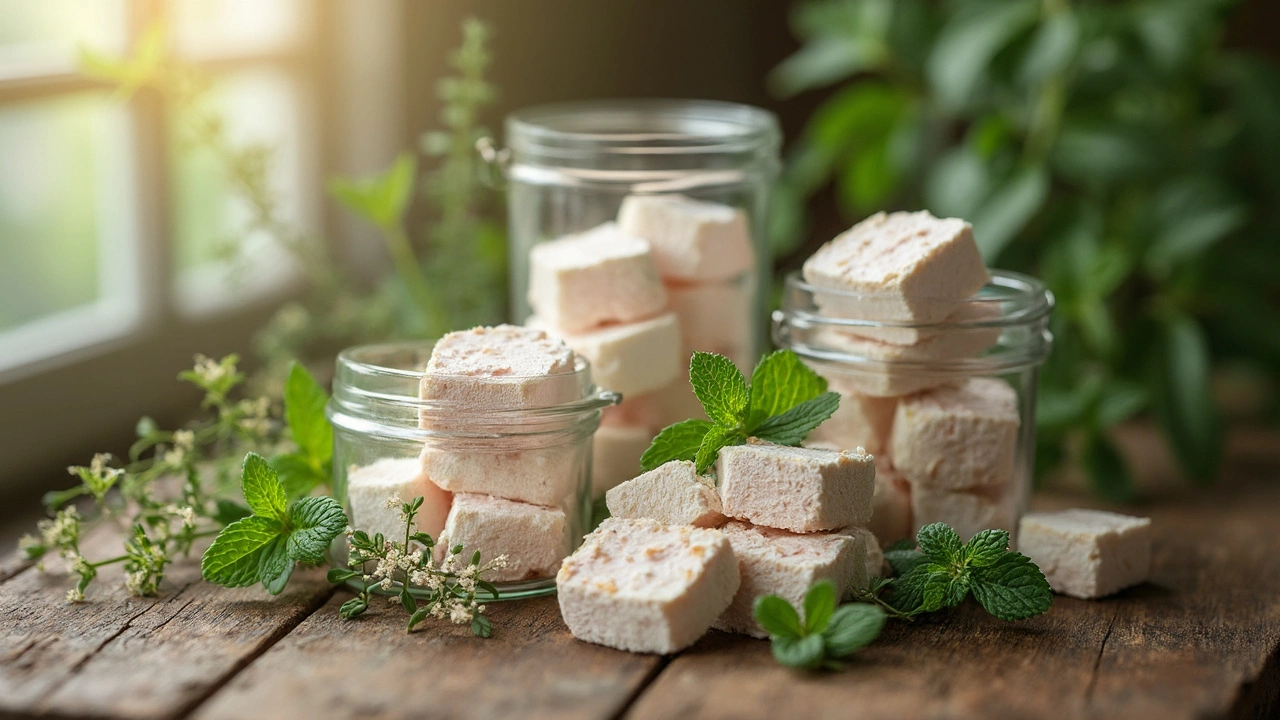Marshmallow Supplements: Uses, Forms, and Safe Tips
Want a simple herbal option for a sore throat or a sensitive stomach? Marshmallow root has been used for centuries as a soothing herb. The key ingredient is mucilage — a slippery, plant-based substance that coats tissues and can calm irritation. This page gives straight, practical advice on how people use marshmallow supplements, what forms work best, and how to stay safe.
Forms and how to pick the right one
Marshmallow comes as tea, capsules, tinctures, syrups, and topical creams. Tea is cheap and fast: steep 1–2 teaspoons of dried root in hot (not boiling) water for 10–15 minutes. Capsules are handy for consistent dosing—most products use powdered root. Tinctures extract active compounds in alcohol or glycerin and act faster. Topical gels and creams are used for irritated skin or minor wounds.
When choosing a product, look for clear labeling (root vs. leaf), organic sources if possible, and third-party testing like USP, NSF, or an independent lab report. Avoid long ingredient lists with fillers and artificial additives. If you want a clean throat remedy, a simple dried-root tea or syrup usually does the job.
Safe use and precautions
Start with a low dose and watch how you feel. A common approach is sipping tea 1–3 times a day or taking a capsule per the label. Because mucilage coats the gut lining, it can affect how well other oral medicines are absorbed. To be safe, take marshmallow products at least 1–2 hours before or after prescription drugs.
Pregnant or breastfeeding? Talk to your healthcare provider before using marshmallow. If you have diabetes, note that some herbal products can affect blood sugar control; monitor levels and check with your doctor. Allergies to plants in the mallow family (like hibiscus or okra) increase the chance of a reaction.
Side effects are usually mild: stomach upset or a mild rash are possible. Stop using the supplement and see a clinician if you develop hives, breathing trouble, or swelling.
Want a practical tip? For a throat-coating drink, make a strong tea, cool it a little, and add a spoon of honey. The honey helps comfort the throat and pairs well with the marshmallow’s coating effect. If your symptoms keep coming back or get worse — especially persistent cough, high fever, or difficulty breathing — get medical care rather than relying on herbs alone.
If you have questions about specific brands or how marshmallow might interact with your prescriptions, contact a pharmacist or your doctor. Herbal supplements can be useful, but clear info and common-sense precautions make them safer and more effective.
